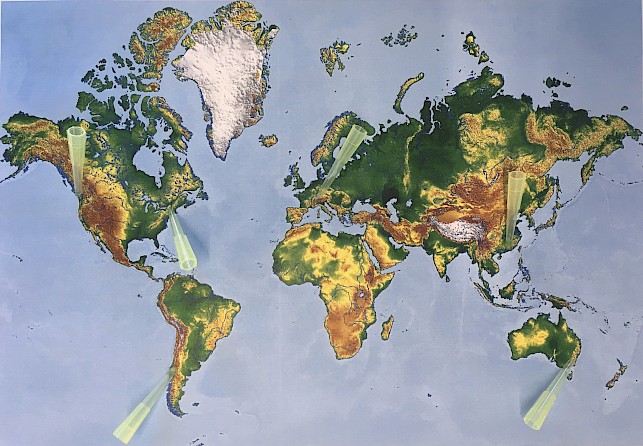By: Matthew Randall, Ph.D. ETH Zürich, & Niki Ubags, Ph.D., CHUV, Lausanne
Exploration is the crux of science, whether it is that of visible or invisible phenomena. Without the exploration of faraway lands, Darwin’s theory of evolution would not exist. However, today’s technology provides scientists with more information than ever, so is this type of exploration really still needed? We can explore places or accomplish many things without leaving the comfort of our home or office. So, why cross an ocean when you can simply collaborate through a video chat with scientists from around the globe?

Crossing the ocean for research is not limited to simply acquiring data or becoming knowledgeable about a specific subject matter. By living in a different environment, different culture, language, et cetera you may find yourself starting to think differently about the world around you and the way you conduct science or think about new scientific questions. In a sense, physical exploration brings mental exploration.
How does physically being somewhere else benefit you in your scientific career?
When you find yourself dropped into a strange new place, all of your senses become heightened and you first notice all of the differences (both cultural and social). Even the simplest of things become interesting, whereas the same things commonly encountered at home were too mundane to see from a different perspective. This outsider’s perspective is the first benefit to you. The research you would otherwise perform routinely will come into a new light and not only will others have the opportunity to help you view your projects differently, but you yourself begin to think differently. For example, a year ago I moved to Switzerland and joined a laboratory in the Institute for Biomechanics at ETH Zürich. Most of my colleagues are researching processes that range from mechanobiology signaling pathways to computer-generated simulations of bone fracture. Now, as a redox biologist, not only do I have the opportunity to discuss my research with people who approach problems in a different way, but I also begin to view my own research from this outside perspective. Moreover, I have begun to integrate their knowledge and thinking into my work and approach my questions from a very different perspective than I had before.
When you place yourself in someone else’s shoes, and begin to view things from another perspective, you may also begin to - in essence - find yourself. This active mindfulness, as I call it, is critical for navigating not only life, but also career and research. What do I want? How should I get there? These are the questions that you will find yourself asking. Stepping out of your own shoes and looking at how you navigate in a new place with new people and situations, you come to understand your own preferences as well as how you feel in certain situations. Since people in other parts of the world communicate differently about what they want and how they feel, you face the challenge to understand not only how you express yourself, but also how others express themselves toward you. The ability to know yourself as well as understand others is certainly an earned skill of working internationally.
Every country, every institution, and every lab functions differently, therefore the best way to succeed in a new place is to adapt. When you begin to see yourself as a part of the world in which you once felt foreign, you might realize that you are capable of adaptation, even on a short-time scale. You are capable of using tools and skills that you had not known how to use before. The ability to adapt to not only your physical environment but also the political and research environments of a new institution promotes your flexibility and creativity in your character as well as in your research.
Now you may be thinking… how long do I have to be abroad to become “enlightened.” It is not necessary to move abroad permanently to benefit from these experiences. In the case for Darwin, it was only after his return to England from the Galapagos, while contemplating his drawings, that he would develop his theory of evolution. In a similar way, returning home with a new perspective on your own research and life may lead to the greatest of discoveries of yourself and your career.
— Published